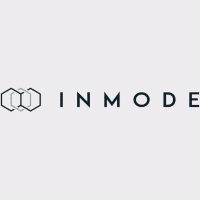
In today’s fast-paced digital world, maintaining a strong and positive online reputation is paramount for businesses seeking success. With the power of the internet, information spreads rapidly, making it crucial for brands to protect their image and proactively manage their online presence. In this comprehensive guide, we will explore the essential strategies and tactics for effective online reputation management (ORM) within the realm of digital marketing. From understanding the importance of ORM to implementing proactive measures, this guide equips you with the knowledge to safeguard your brand’s integrity and thrive in the digital landscape.
1. The Significance of Online Reputation Management
In an increasingly interconnected world, your brand’s online reputation can make or break your success. Potential customers often turn to search engines and social media platforms to gather information and make purchasing decisions. A positive online reputation builds trust, attracts customers, and enhances your brand’s credibility. Conversely, a negative reputation can deter prospects and lead to significant damage. Recognizing the importance of ORM is the first step towards protecting and enhancing your brand’s image.
2. Conducting a Comprehensive Brand Audit
Before devising an ORM strategy, it is essential to conduct a thorough brand audit to understand your current online reputation. Review your brand’s search engine results, social media mentions, customer reviews, and relevant industry forums. Identify any negative content or misinformation that may be harming your brand’s perception. By gaining a clear understanding of your brand’s online landscape, you can develop targeted strategies to address and mitigate potential reputation risks.
3. Crafting a Positive Brand Narrative
One of the most effective ways to manage your online reputation is by taking control of your brand narrative. Craft a compelling brand story that resonates with your target audience and aligns with your core values. Clearly communicate your brand’s mission, unique selling points, and commitment to customer satisfaction. By proactively shaping your brand narrative, you can influence how others perceive your brand and diminish the impact of negative content.
4. Implementing Effective Search Engine Optimization (SEO) Strategies
SEO plays a vital role in managing your online reputation. By optimizing your digital assets, you can ensure that positive and relevant content ranks higher in search engine results, pushing down negative mentions. Incorporate targeted keywords related to your brand, products, and industry within your website content, blog posts, and social media profiles. Consistently publishing high-quality content and earning backlinks from reputable sources will further enhance your SEO efforts and solidify your brand’s online authority.
5. Proactive Social Media Management
Social media platforms provide powerful avenues for managing your online reputation. Regularly monitor and engage with your audience across various social channels. Address customer queries, concerns, and complaints promptly and professionally. By actively participating in conversations, you can demonstrate your commitment to customer satisfaction and showcase your brand’s responsiveness. Implementing a social media content strategy that showcases your brand’s values and engages your audience will contribute to a positive brand perception.
6. Encouraging and Managing Customer Reviews
Customer reviews carry significant weight in shaping your brand’s online reputation. Encourage satisfied customers to leave positive reviews on platforms such as Google My Business, Yelp, or industry-specific review websites. Respond thoughtfully to both positive and negative reviews, addressing concerns and expressing gratitude for the positive feedback. By actively managing customer reviews, you can showcase your brand’s dedication to customer satisfaction and build trust with potential customers.
7. Online Crisis Management
Despite proactive measures, unforeseen crises can arise and threaten your brand’s reputation. It is crucial to have a well-defined crisis management plan in place. Act swiftly, transparently, and empathetically in addressing any negative situations. Ensure open lines of communication with your audience, stakeholders, and the public. Provide regular updates, take responsibility for any mistakes, and offer appropriate solutions. By demonstrating transparency and a commitment to resolving issues, you can mitigate the impact of a crisis on your brand’s reputation.
8. Monitoring Online Mentions
To effectively manage your online reputation, it is essential to monitor online mentions of your brand. Utilize monitoring tools and services to track brand mentions across various platforms. Set up alerts to receive notifications whenever your brand is mentioned. This allows you to stay informed, address issues promptly, and engage with your audience in real time. By proactively monitoring your brand’s online presence, you can swiftly identify and respond to potential reputation risks.
9. Building Positive Relationships with Influencers
Influencer marketing can be a powerful tool for enhancing your brand’s reputation. Identify influencers who align with your brand values and have a genuine connection with your target audience. Collaborate with them to create authentic and engaging content that promotes your brand positively. Influencers can help amplify your reach, build trust, and foster positive associations with your brand. Building strong relationships with influencers can provide long-term benefits for your brand’s reputation management efforts.
10. Online Reputation Repair
In cases where your brand has already suffered from a negative online reputation, proactive steps for repair are necessary. Work to remove or suppress negative content through legal means, such as contacting the website owner or engaging with professional reputation management services. Simultaneously, focus on generating positive content through content marketing, guest blogging, and thought leadership initiatives. By consistently promoting positive content, you can gradually rebuild your brand’s reputation and regain the trust of your audience.
11. Seeking Professional Assistance
Managing your online reputation can be a complex and time-consuming process. Consider seeking professional assistance from reputable ORM agencies or consultants who specialize in digital marketing and reputation management. These experts possess the knowledge, experience, and resources to implement effective strategies tailored to your brand’s specific needs. With their assistance, you can navigate the intricacies of online reputation management and achieve optimal results.
Conclusion
In the digital marketing landscape, protecting and managing your brand’s online reputation is a crucial component of success. By understanding the significance of ORM, conducting a comprehensive brand audit, crafting a positive brand narrative, implementing effective SEO strategies, engaging in proactive social media management, encouraging customer reviews, practicing crisis management, monitoring online mentions, building relationships with influencers, pursuing reputation repair, and seeking professional assistance when needed, you can safeguard your brand’s integrity and thrive in the digital realm. Remember, a strong online reputation is an invaluable asset that can differentiate your brand, attract customers, and drive sustainable growth.




























